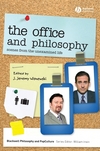Seven steps towards building outreach into CU small groups
I've been thinking a bit recently about how to make CU small groups in all sorts of different university contexts more effective in outreach.
Here are seven steps I've come up with that can build a more of a missional edge in CU small groups:
1. Work hard to show your small group members how all components of small group time are inter-related. CU small group outreach tends to fail if outreach is seen as an unnatural intrusion to small group life. Outreach becomes more effective and natural when, for instance, Bible study is presented as something which energises the group's mission; as group members grow in trust and relationship with each other, they gain a sense of community in witness, and so on. Prayer topics in CU small groups should be wide-ranging (and it’s important to make space for the real needs that small group members have), but there should be an ongoing eye on outreach.
I made some practical suggestions on how to do this in a post a while back.
2. Ask questions that encourage discussion in the small group about how the gospel really is news that is good for people today. For instance, in a Bible study on 1 Peter 2:9, you could ask:
- What are Christ’s deeds?
- Why are they wonderful?
- What kind of darkness previously surrounded you?
- What is your present experience of God’s light?
(This is based on an approach I read in the book Good Things Come in Small Groups, which I believe is now out of print). Questions like these help small group members grapple with the specifics of God’s love, encourage them to appreciate the grace of the gospel, and help them begin to personalise and talk about it.
3. Set the perspective from the beginning that outreach is both necessary and natural. If your small group is less confident in evangelism, start initially in forms of non-threatening outreach, in which group members confident. As gospel confidence increases in your group, you can step up into more stretching forms of outreach.
4. Ask for help. If you need help in your outreach, don't let this stop you! Speak to your CU's small group coordinator or your CU Staff Worker for help.
5. Press for group ownership in outreach. Work towards small group members seeing your small group as a think tank. Work together to reach consensus on what specific task God has for you. Group ownership enables everyone in the small group to work as a team: this is much more fun, more effective and you'll find small group members are more committed.
6. Plan time for planning. To reduce undesirable last-minute panic, start the planning process far enough in advance. Factor in small group time to make these plans. Make sure too that you've thought about how you'll follow up those people who show interest in the gospel.
7. Surround all outreach in prayer. As we ask God to intervene in lives and events, we learn to rely on his strength rather than ours. While God commands us to be stewards of our gifts, energy and resources, it is not our job to change hearts. The Holy Spirit alone can do that. Our role is to serve as signposts pointing to Jesus.
It’s great when small group members keep a list of 3-5 friends, praying that they get opportunities to share the gospel and that their friends hearts would be open to the gospel. Set aside time regularly for prayer for these friends who are without the knowledge and experience of Christ's love.
When you have an event, ask for prayer wherever you can - at your church, in CU central meetings - and, of course, spend good time praying together in your small group too.





